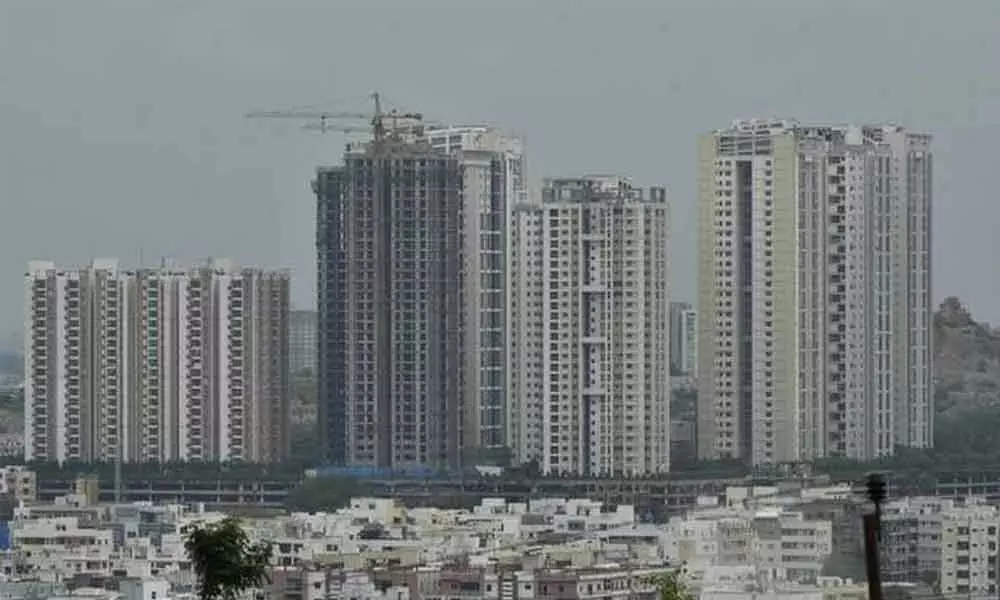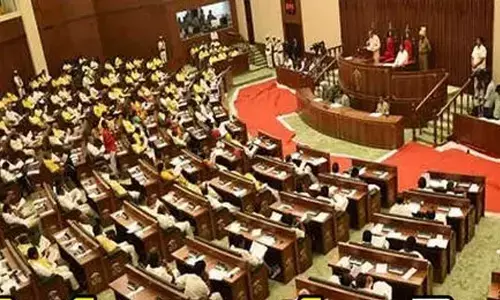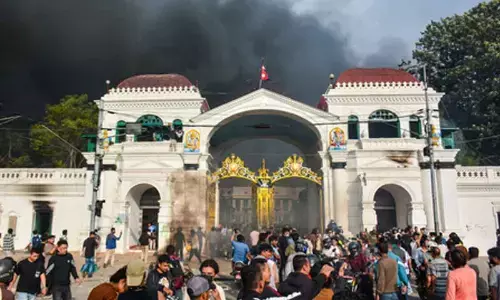Hyderabad bucks 2019's slow real estate trend

Real estate in the city stayed afloat due to a stable political fabric, constant inward migration of working professionals and enhanced infrastructure, among others
2019 was 'nothing to write home about' when it came to the Indian housing sector's performance. The liquidity crunch, slow sales and poor investor demand put a dent in almost every city's performance. However, Hyderabad was a notable exception.
Real estate in this city stayed afloat due to a stable political fabric, constant inward migration of working professionals and enhanced infrastructure, among others.
Initiatives like Hyderabad Metro Rail, development of arterial roads and elevated corridors in and around IT hubs of Gachibowli, HITEC City and Tellapur helped boost the city's profile and prospects.
Also, the creation of new districts in its vicinity like Shamshabad, Bhuvanagiri, Yadadari and Vikarabad created fresh avenues for overall real estate growth.
Commercial leasing on a high
Increased office leasing activity in recent times has positioned Hyderabad as one of the most active commercial markets in the South.
Compared to its neighbour Bangalore, the city may have been later bloomer when it comes to commercial development.
However, it has now emerged as a major office hub on the back of proactive governance, robust infrastructure, ease of doing business and quick project approvals.
In the first three quarters of 2019, Hyderabad saw net office space absorption of close to 6 mn sq. ft. Comparatively low rentals for Grade A office space gives the city an edge over the other southern office hubs of Chennai and Bangalore.
Residential market stays afloat
Hyderabad has performed moderately well in the residential market as well and is witnessing increased activity due to its affordable property prices.
Moreover, builders have restricted their new supply in the market, choosing to focus instead on clearing their previous unsold stock.
Hyderabad saw its unsold housing stock decline by an impressive 12 per cent annually in Q3 2019. Hyderabad's unsold stock stood at just 23,900 units – the lowest among the top 7 cities.
The city saw total housing sales of nearly 13,110 units between January to September 2019, declining marginally by 4 per cent against the corresponding period in 2018 when it stood at 13,640 units.
New avenues of growth
The IT corridor stretching from Madhapur to Gachibowli and the Financial District in western Hyderabad have dominated Hyderabad's real estate scene.
However, relentless development over the last decade or so led to saturation in these areas, with no major land banks left for further development.
To attract IT firms towards the eastern parts of the city, the government came up with its 'Look East' policy. Areas from Uppal to Bhuvanagiri and Warangal Highway will now receive a fillip as the government intends to promote IT development there.
Plotted development gaining ground
Compared to other metros, land prices in Hyderabad are relatively affordable and quite within the reach of many buyers, especially in many of the peripheral areas of the city.
Buying a plot is also emerging as the preferred investment option considering its high resale value as compared to other residential properties.
Several localities, mostly in the affordable and peripheral areas of Hyderabad, are emerging as land investment hubs. These include Shankarpally, Srisailam Highway, Adibatla, Shameerpet and the Warangal Highway.
The average land values in these localities is as low as Rs 400 per sq. ft. and goes all the way up to Rs 2,200 per sq. ft. Plotted developments in Hyderabad are likely to benefit from mega initiatives such as Pharma City and Yadadri Development Plan.
Patchy regulation casts a shadow
Putting a spanner in the wheel of Hyderabad's real estate growth is the lack of regulation.
RERA has still not taken complete hold in Telangana compared to other states like Maharashtra, Gujarat, Karnataka and Uttar Pradesh, which took the lead in RERA compliance.
As on December 13, December 2019, nearly 1,445 projects have been registered in Telangana while its immediate neighbour Karnataka has seen more than double (3,067) project registrations.
Despite repeated deadlines given to register projects, a large section of developers have not yet registered their projects with the state RERA.
Developers are being let off with a penalty of just Rs 3 lakh for late registration.
In the absence of a strict monitoring system and stringent measures by the authority, many projects are still being sold without registration.
Next, the issue of fixing FSI has also been long pending and needs to be addressed urgently. Unlike other major cities that offer FSI between 2 to 2.5, Hyderabad offers unlimited FSI - allowing developers to construct as per their choice.
Predictably, this is exerting pressure on the city's existing infrastructure. Areas such as HITEC City and Madhapur, which have seen a lot of construction and real estate activity, are facing issues like depletion of groundwater levels, traffic congestion and air pollution.
If construction is left unchecked and unregulated, Hyderabad's real estate image could take a hit.
Fast Forward 2020
In 2019, new launches across cities including Hyderabad remained limited, and this trend will continue in the coming quarters unless the liquidity crisis eases suddenly, and developers have better access to funding.
Considering the present scenario, Hyderabad's housing sales could see 6-10 per cent over the next one year, while new launches are likely to remain muted.
The office market will continue to go from strength to strength with large-scale projects coming up in Madhapur and Gachibowli.
In retail, 12 new malls spreading over 6.5 mn sq. ft. are likely to come up in HITEC City, Secunderabad, Begumpet and Miyapur by 2021-end.
(The author is City Head - Hyderabad, Anarock Property Consultants)










